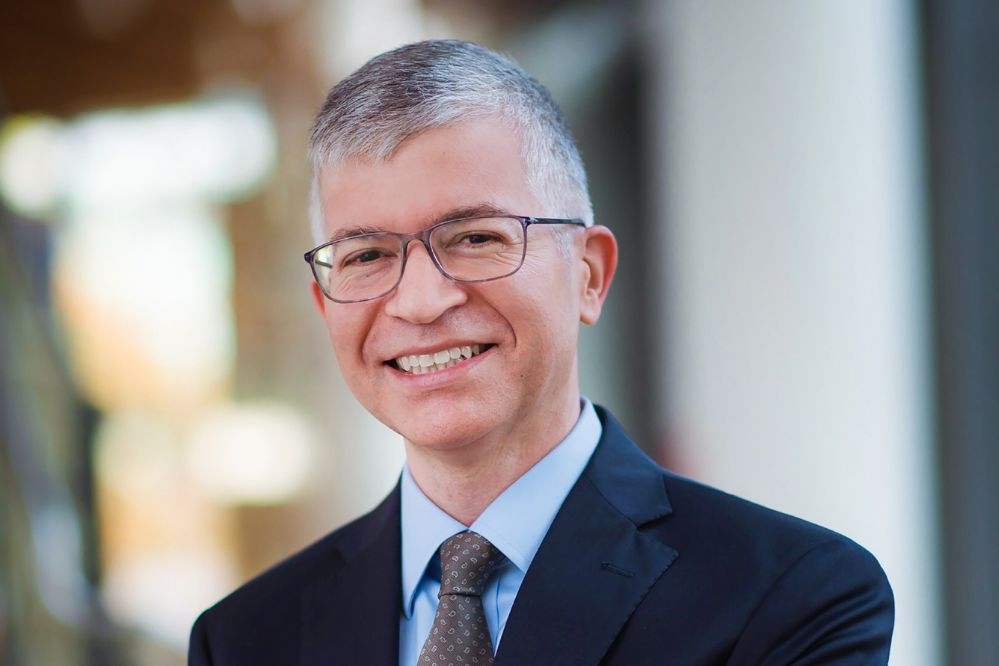
In the United States and around the world, democracy is under threat. Anti-democratic attitudes have become more prevalent, partisan polarization is growing, misinformation is omnipresent, and politicians and citizens sometimes question the integrity of elections.
With this backdrop, the MIT Department of Political Science is launching an effort to establish a Strengthening Democracy Initiative. In this Q&A, department head David Singer, the Raphael Dorman-Helen Starbuck Professor of Political Science, discusses the goals and scope of the initiative.
Q: What is the purpose of the Strengthening Democracy Initiative?
A: Well-functioning democracies require accountable representatives, accurate and freely available information, equitable citizen voice and participation, free and fair elections, and an abiding respect for democratic institutions. It is unsettling for the political science community to see more and more evidence of democratic backsliding in Europe, Latin America, and even here in the U.S. While we cannot single-handedly stop the erosion of democratic norms and practices, we can focus our energies on understanding and explaining the root causes of the problem, and devising interventions to maintain the healthy functioning of democracies.
MIT political science has a history of generating important research on many facets of the democratic process, including voting behavior, election administration, information and misinformation, public opinion and political responsiveness, and lobbying. The goals of the Strengthening Democracy Initiative are to place these various research programs under one umbrella, to foster synergies among our various research projects and between political science and other disciplines, and to mark MIT as the country’s leading center for rigorous, evidence-based analysis of democratic resiliency.
Q: What is the initiative’s research focus?
A: The initiative is built upon three research pillars. One pillar is election science and administration. Democracy cannot function without well-run elections and, just as important, popular trust in those elections. Even within the U.S., let alone other countries, there is tremendous variation in the electoral process: whether and how people register to vote, whether they vote in person or by mail, how polling places are run, how votes are counted and validated, and how the results are communicated to citizens.
The MIT Election Data and Science Lab is already the country’s leading center for the collection and analysis of election-related data and dissemination of electoral best practices, and it is well positioned to increase the scale and scope of its activities.
The second pillar is public opinion, a rich area of study that includes experimental studies of public responses to misinformation and analyses of government responsiveness to mass attitudes. Our faculty employ survey and experimental methods to study a range of substantive areas, including taxation and health policy, state and local politics, and strategies for countering political rumors in the U.S. and abroad. Faculty research programs form the basis for this pillar, along with longstanding collaborations such as the Political Experiments Research Lab, an annual omnibus survey in which students and faculty can participate, and frequent conferences and seminars.
The third pillar is political participation, which includes the impact of the criminal justice system and other negative interactions with the state on voting, the creation of citizen assemblies, and the lobbying behavior of firms on Congressional legislation. Some of this research relies on machine learning and AI to cull and parse an enormous amount of data, giving researchers visibility into phenomena that were previously difficult to analyze. A related research area on political deliberation brings together computer science, AI, and the social sciences to analyze the dynamics of political discourse in online forums and the possible interventions that can attenuate political polarization and foster consensus.
The initiative’s flexible design will allow for new pillars to be added over time, including international and homeland security, strengthening democracies in different regions of the world, and tackling new challenges to democratic processes that we cannot see yet.
Q: Why is MIT well-suited to host this new initiative?
A: Many people view MIT as a STEM-focused, highly technical place. And indeed it is, but there is a tremendous amount of collaboration across and within schools at MIT — for example, between political science and the Schwarzman College of Computing and the Sloan School of Management, and between the social science fields and the schools of science and engineering. The Strengthening Democracy Initiative will benefit from these collaborations and create new bridges between political science and other fields. It’s also important to note that this is a nonpartisan research endeavor. The MIT political science department has a reputation for rigorous, data-driven approaches to the study of politics, and its position within the MIT ecosystem will help us to maintain a reputation as an “honest broker,” and to disseminate path-breaking, evidence-based research and interventions to help democracies become more resilient.
Q: Will the new initiative have an educational mission?
A: Of course! The department has a long history of bringing in scores of undergraduate researchers via MIT’s Undergraduate Research Opportunities Program. The initiative will be structured to provide these students with opportunities to study various facets of the democratic process, and for faculty to have a ready pool of talented students to assist with their projects. My hope is to provide students with the resources and opportunities to test their own theories by designing and implementing surveys in the U.S. and abroad, and use insights and tools from computer science, applied statistics, and other disciplines to study political phenomena. As the initiative grows, I expect more opportunities for students to collaborate with state and local officials on improvements to election administration, and to study new puzzles related to healthy democracies.
Postdoctoral researchers will also play a prominent role by advancing research across the initiative’s pillars, supervising undergraduate researchers, and handling some of the administrative aspects of the work.
Q: This sounds like a long-term endeavor. Do you expect this initiative to be permanent?
A: Yes. We already have the pieces in place to create a leading center for the study of healthy democracies (and how to make them healthier). But we need to build capacity, including resources for a pool of researchers to shift from one project to another, which will permit synergies between projects and foster new ones. A permanent initiative will also provide the infrastructure for faculty and students to respond swiftly to current events and new research findings — for example, by launching a nationwide survey experiment, or collecting new data on an aspect of the electoral process, or testing the impact of a new AI technology on political perceptions. As I like to tell our supporters, there are new challenges to healthy democracies that were not on our radar 10 years ago, and no doubt there will be others 10 years from now that we have not imagined. We need to be prepared to do the rigorous analysis on whatever challenges come our way. And MIT Political Science is the best place in the world to undertake this ambitious agenda in the long term.



